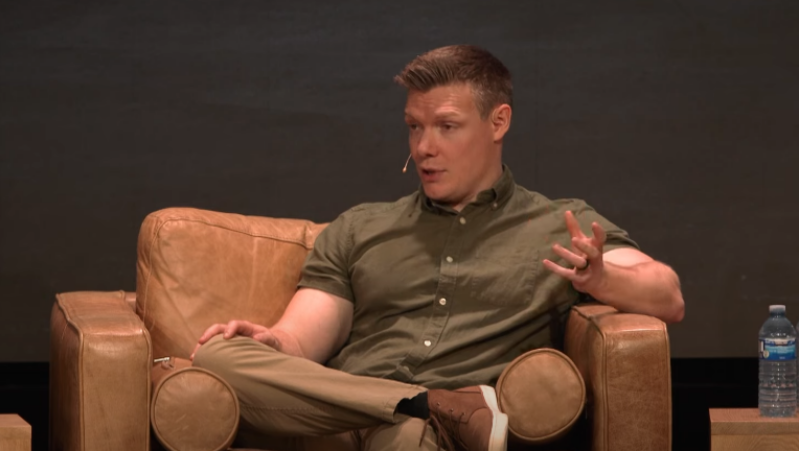
At the packed Apologetics Canada Conference, a lively—and slightly spicy—conversation unfolded that had everyone leaning in: Is The Chosen helping people meet Jesus, or is it just good Christian fanfiction that’s messing with our imagination?
That was the vibe at a live Q&A session with apologist Wes Huff and YouTuber/podcaster Rouslan, who tackled the elephant in the room head-on: What do we do with artistic portrayals of Jesus like The Chosen—especially when people start seeing actor Jonathan Roumie instead of the Jesus of Scripture?
Rouslan didn’t hold back. “My friend literally said, ‘Every time I read my Bible now, I see Jonathan Roumie,’” he shared. “That’s a problem. It’s like reading Lord of the Rings after the movies—you start mixing the adaptation with the original story.”
And for those wondering if that’s just overreacting? Huff brought a measured but honest take. “There’s a danger when we confuse source material with artistic license,” he said. “But The Chosen also has the power to humanize the gospel, to help people feel the narrative more deeply.”
So where’s the line?
Rouslan got straight to it: The Chosen is a supplement, not a substitute. He dropped a memorable analogy that had the crowd chuckling but nodding in agreement: “You can’t live on protein shakes. You need real food. The Chosen, Christian podcasts—those are supplements. The Bible is the actual meal.”
But here’s the twist—despite the potential confusion, data shows The Chosen is actually getting people to open their Bibles more, not less. “That’s a massive net positive,” Rouslan said. “If it leads people to Scripture, I’m all for it.”
And if anyone still thinks The Chosen is trying to be the next gospel, Rouslan made this crystal clear: “They’re not making a Bible show. They’re making fanfiction inspired by the Bible. And they’ve always said that.”
That term—fanfiction—hit hard. It reframes the show as a creative interpretation rather than a replacement of sacred text. And for many watching, it might just shift how they engage with the series.
Still, Huff added a gentle warning: “We need to be clear in our minds. Is this scene from Scripture, or from the writers of The Chosen? That distinction matters.”
The conversation wasn’t just a critique. It was a call to media literacy among Christians—and a reminder that art can serve the truth, but it should never blur the truth.
And in a moment of honest self-awareness, Rouslan admitted: “I’m biased. I know Dallas. I’ve been to Chosen Con.” But even so, he held the line—media needs to stay in its lane. “Let people define what they’re creating. Don’t put expectations on it they never claimed to meet.”
So, is The Chosen dangerous or powerful? The answer: Yes. And no. Like any art, it depends on the viewer. But what’s clear is this: The Chosen is no longer “just a Christian show.” It’s become a cultural conversation—and Christians better be ready to engage with it.






